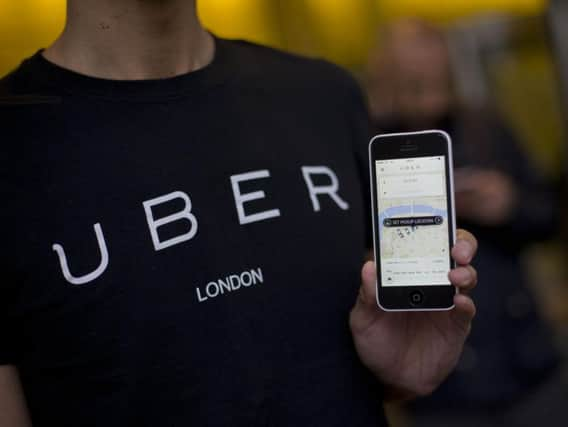This is the reason Uber Technologies' quarterly loss has widened


Nevertheless, the company promised it would be profitable by the end of 2021 as quarterly revenues, driven by its global ride-hailing business, beat expectations.
“Our results this quarter decisively demonstrate the growing profitability of our Rides segment,” said Dara Khosrowshahi, the company's chief executive. “Rides Adjusted EBITDA is up 52 per cent year-over-year and now more than covers our corporate overhead. Revenue growth and take rates in our Eats business also accelerated nicely. We’re pleased to see the impact that continued category leadership, greater financial discipline, and an industry-wide shift towards healthier growth are already having on our financial performance.”
Advertisement
Hide AdAdvertisement
Hide AdUber’s costs jumped about 33 per cent to $4.92 billion (£3.81 billion) in the latest quarter.
Gross bookings grew $3.7 billion year-over-year to $16.5 billion, representing 29 per cent year-over-year growth, or 32 per cent on a constant currency basis.
Overall, the company’s net loss widened to $1.16 billion in the quarter ended September 30, from $986 million a year earlier
“Uber would be EBITDA positive if it wasn’t also investing in Uber Eats, the freight operation and autonomous driving capabilities,” said Atlantic Equities analyst James Cordwell.
Advertisement
Hide AdAdvertisement
Hide AdDuring the third quarter of 2019, following a number of leadership and organisational changes, Uber reorganised its operations and financial reporting into five segments: Rides, Eats, Freight, Other Bets, Advanced Technologies Group and Other Technology Programmes.
On its website, Uber says its "mission is to ignite opportunity by setting the world in motion".
The company said that it had revolutionised personal mobility with Ridesharing, and it is leveraging its platform to change the meal delivery and logistics industries.
It added: "We develop and operate proprietary technology applications supporting a variety of offerings on our platform. We connect consumers with providers of ride services, restaurants and food delivery services, public transportation networks, e-bikes, e-scooters and other personal mobility options.
Advertisement
Hide AdAdvertisement
Hide Ad"We use this same network, technology, operational excellence and product expertise to connect shippers with carriers in the freight industry. We are developing technologies to provide autonomous driving vehicle solutions to consumers, networks of vertical take-off and landing vehicles and new solutions to solve everyday problems."
Earlier this year, Uber revealed it was offering in-app mindfulness exercises in a bid to offer a few minutes of calm to passengers while they were on their journey.
The bespoke guided meditations and breathing exercises were made available to millions of Uber users across the UK. The sessions were produced in partnership with Calm, the app for sleep, meditation and relaxation. The sessions aimed to help passengers relax, or improve focus, while they’re in the vehicle.
Uber works by connecting licensed drivers with passengers at the touch of a button via a smartphone app, cutting out traditional private hire firms. It launched its services in Yorkshire in 2014.